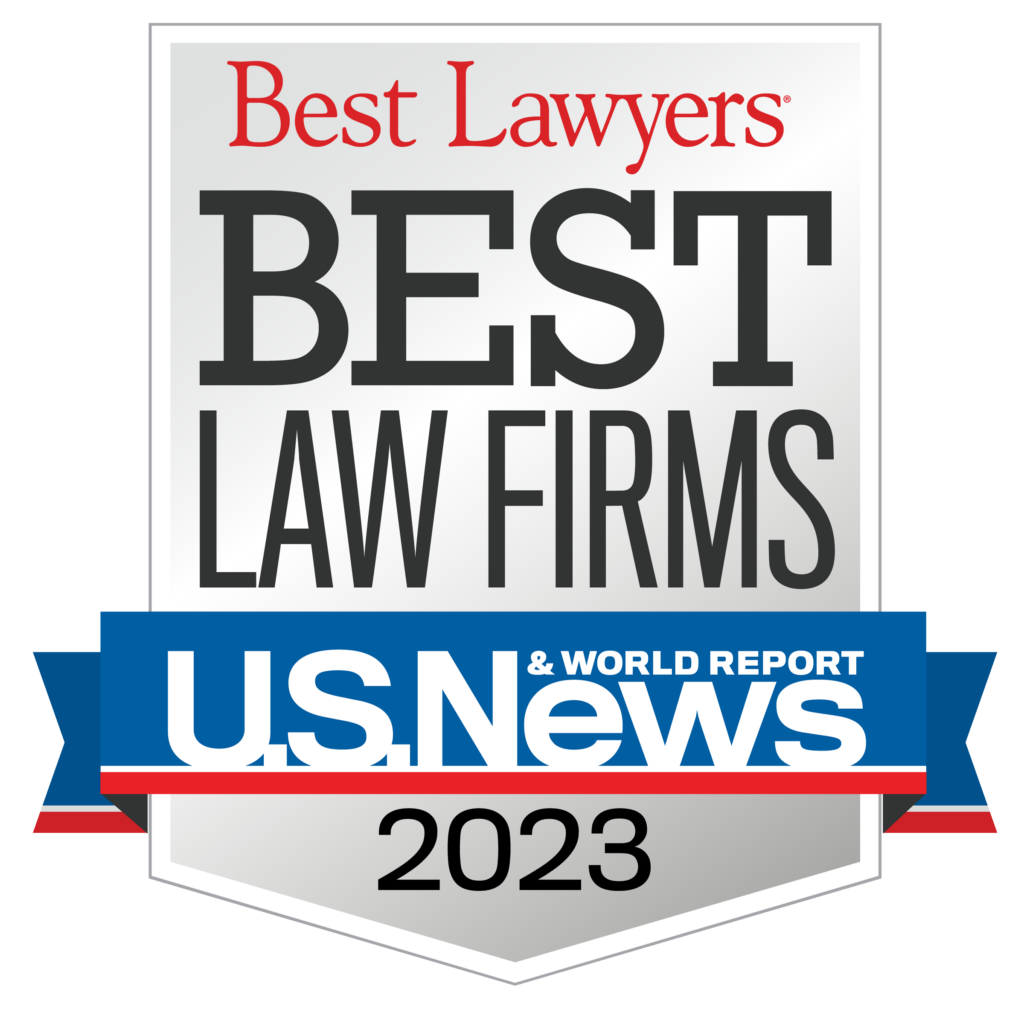More HH Legal Updates
COBRA Administration In A COVID-19 World (And Beyond)
Most employers are generally aware of the requirement to offer the opportunity for an employee to elect to continue coverage under the employer’s group health plan following a “qualifying event” such as termination of employment or a reduction in hours resulting in a loss of coverage. (Federal COBRA rules generally apply to employers with 20 or more employees. Most states also have “mini-COBRA” laws that apply to employers with fewer than 20 employees.) As many employers are now experiencing reductions in workforce due to the effect of the coronavirus on the economy, proper COBRA administration is of critical importance. This importance is heightened by new developments in the area, such as updated model notices published by the Department of Labor (DOL), relief in the timing requirements applicable to notices and elections due to COVID-19, and increased litigation against employers who allegedly failed to satisfy their obligations with regard to employee communications. All of these developments are discussed in further detail below.
Model Notices:
COBRA requires that administrators of group health plans provide certain notices to employees and their covered family members. The two primary notices are the General Notice (provided at the beginning of coverage) and the Election Notice (describing rights to elect continuation coverage following the occurrence of a qualifying event). For many years, the DOL has published model notices to assist employers in satisfying their obligations.
On May 1, 2020, the DOL issued new versions of its model COBRA notices. For the most part, the new versions are the same as the prior versions (last updated in 2014 to reflect the availability of coverage through the “Marketplace” established pursuant to the Affordable Care Act). However, the new models contain details concerning the interaction between Medicare and COBRA, intended to give qualified beneficiaries a better understanding of the options available to them.
The DOL has indicated that use of the model notices by employers and plan administrators will be deemed to constitute compliance with the COBRA notice requirements (assuming timely delivery). However, the model notices do not necessarily comply with all of the requirements of the law, which gives employees an independent right to sue for COBRA failures. Thus, while use of the model notices will protect employers against enforcement actions by the DOL, employees might still pursue actions for alleged failures. The reality of this litigation threat is discussed further below.
COVID-19 Relief:
On April 29, 2020, the IRS and the DOL issued guidance providing relief to employers and individuals who might have difficulty meeting certain deadlines with regard to employee benefit plans, including, but not limited to, COBRA administration. This relief is available throughout the duration of the “Outbreak Period,” which is defined to mean the period beginning March 1, 2020 and ending 60 days after the announced date of the end of the national COVID-19 emergency (or such other date as may be announced by the IRS and DOL). Thus, the end date of the Outbreak Period is not known at this time.
In the context of COBRA, the relief extends all of the following deadlines: (a) the date by which an individual must notify the plan administrator of a qualifying event, (b) the period during which the administrator of a group heath plan must provide a COBRA election notice to a qualified beneficiary, (c) the 60-day period during which the qualified beneficiary must elect COBRA continuation coverage, and (d) the date by which COBRA premiums must be paid.
In each of these cases, if the time period for taking action began before the beginning of the Outbreak Period (i.e., before March 1, 2020), the entire Outbreak Period is disregarded in determining the applicable deadline. If the event that triggers the obligation to act occurs during the Outbreak Period, the period for taking the action does not begin until the day immediately following the end of the Outbreak Period.
The above is illustrated by the following example: Assume that the national COVID-19 emergency ends July 2, 2020, and therefore the Outbreak Period ends August 31, 2020 (60 days later). Assume that an employee was permanently laid off (i.e., had a termination of employment) on April 1, 2020 and received a COBRA election notice on that same day. The employee will have until October 30, 2020 (60 days after the end of the Outbreak Period) to elect COBRA, and an additional 30-day grace period to pay premiums for all of the months following loss of group health plan coverage. (These rules give employees a substantial opportunity to “game the system” by waiting to see whether coverage is needed during the Outbreak Period, and then paying premiums for that coverage only if they do not exceed the medical expenses incurred.)
COBRA Litigation:
Recently, several class action lawsuits have been filed against employers who allegedly failed to provide COBRA election notices satisfying the law’s content requirements and/or allegedly failed to provide such notices in a timely manner. Typically, the lead plaintiff is a former employee who terminated employment from the employer, did not elect COBRA coverage, and later incurred medical expenses. In addition to expenses incurred, damages in COBRA cases can include statutory penalties (up to $110 per day), attorney fees, and such other amounts as a court determines to be appropriate, in its discretion. Therefore, although these suits have been brought against larger employers (where damages are likely to be more substantial), smaller employers should also pay attention to lessens learned.
One might reasonably conclude that use of the DOL’s model notice insulates an employer from liability, but that is not the case. The DOL regulations provide that use of the model notice will be deemed to satisfy the content requirements, but only if the notice is “appropriately modified and supplemented.” Further, the notice itself states that “to use this model election notice properly, the plan administrator must fill in the blanks with the appropriate plan information.” Thus, the structure of the model notice leaves the door open to arguments that it was not completed, modified or supplemented properly. The lawsuits have alleged, among other defects, that the notice (a) failed to provide the name, address and phone number of the plan administrator, (b) was not written in a manner calculated to be understood by the average plan participant (as the regulations require), (c) did not adequately explain the procedure for electing coverage, (d) failed to identify the specific end date for COBRA coverage (e.g., because it only included the starting date and the duration of coverage (e.g., 18 months)), and/or (e) failed to provide the address to which COBRA payments should be sent (even if a properly-addressed envelope was included).
With regard to the timing of COBRA notices, the COVID-19 relief described above helps employers by providing extended deadlines, but also potentially gives rise to increased opportunities for failure, such as in the case of an employer who takes advantage of the relief but then neglects to take appropriate action at the end of the Outbreak Period.
In summary, the model notices provided by the DOL are a good start, but employers should exercise due diligence in preparing the final version that is actually sent to a qualified beneficiary, as opposed to taking a careless “just get it out the door” approach. While many employers contract with a third-party service provider for COBRA administration, the employer is ultimately responsible for COBRA compliance. Therefore, such employers should review their forms and procedures with their providers.
Please contact Gary Gunnett at (412) 288-2210 or ggunnett@hh-law.com with any questions on any of the above, or for assistance in updating COBRA notices.
About Us
Trusted and Cost-Effective Business Law, Business Litigation and Estate Planning Attorneys and Counselors; Building Client Confidence™ with Businesses and Individuals Since 1975
Our firm offers individualized solutions and the highest quality, client-driven and cost effective legal services. Houston Harbaugh, P.C., is a well-known law firm in Pittsburgh, serving Pennsylvania, West Virginia and Ohio. Our diverse practice areas include Business Law, Business Litigation, Estate and Succession Planning, Intellectual Property Litigation and Prosecution, Employment and Labor, Employee Benefits, Oil and Gas, Landowner and Property Dispute Counseling and Litigation, Health Care, Environmental, Real Estate, Construction, Complex Tort and Catastrophic Injury Litigation, Insurance coverage and Bad Faith Law, Mediation, Arbitration and Special Master appointment work. As one of the 20 largest law firms in Pittsburgh, our lawyers serve clients on a regional and national basis.
We regularly represent regional, national and international insurance carriers in defense, insurance coverage, unfair trade practices and bad faith matters, and we issue opinions letters and coverage analyses for insurers. We defend designers, manufacturers and sellers in pharmaceutical, products and medical products liability matters and we litigate and try cases involving catastrophic injuries, industrial accidents, toxic torts, professional, engineering and architectural negligence, and agent and broker claims and lawsuits.

Why Houston Harbaugh, P.C.? The Answer Is Clear.
We are accomplished litigators with a strong track record of success in the courtroom and in jury trials. We design and manage business transactions, succession planning, banking and regulatory issues. Our firm has regularly been featured in the U.S. News “Best Lawyers”® rankings of Pittsburgh’s “Best Law Firms.” Our attorneys are also regularly nominated as “Best Lawyers” in this publication. In addition, many of our attorneys are consistently recognized in the annual national Super Lawyers peer review rankings, and our corporate practice has been selected as the winner of The Legal Intelligencer’s Best Law Firm Corporate Practices contest for the Midsize Firm category. Our property and landowner counseling and litigation practice in Oil and Gas and Real Estate is ranked at the top on a regional basis. We help clients to apply for, prosecute, audit, manage and protect intellectual property rights in patent, trademark, copyright and trade secrets. We are admitted to the USPTO and have experience in the TTAB. Some of our firm’s shareholders are Adjunct Professors of Law at the Duquesne University School of Law in litigation and intellectual property courses.
Helping You Achieve Your Goals For Over 40 Years
Since our inception as a health care practice in 1975, our attorneys have represented clients in state and federal courts in Pennsylvania, West Virginia, Ohio and throughout the nation. We have grown into a multi-disciplinary practice with the ability to handle complex business transactional and litigation matters. We counsel on estate and succession planning and on trust and guardianship matters. We have a strong employment and labor practice. We represent clients in trade secret counseling and federal Defend Trade Secret Act (DTSA) counseling and litigation. Our DTSALaw® practice group is well versed in this federal body of trade secret law. We counsel, draft, litigate and defend claims involving employment non-compete, restrictive covenants, non-disclosure agreements and breach of contract matters. We service clients in the collection of debts and in bankruptcy creditor matters. Houston Harbaugh litigates in Orphans and Probate courts for matters involving estates and trusts. We also provide mediation and arbitration services to parties involved in litigation and our lawyers are currently serving as court appointed special masters in the Federal Courts.
Contact us and Learn How We Can Help You and Your Business
For more information on how we can help you, call our Pittsburgh office at 412-281-5060. You can also reach us online.
DTSALaw®; Business Litigation; PSMN®; and PSMNLaw® are federally registered trademarks of Houston Harbaugh, P.C. and this website is copyright protected. All rights Reserved to Houston Harbaugh, P.C.. Building Client Confidence™. www.dtsalaw.com www.psmnlaw.com www.psmn.com

